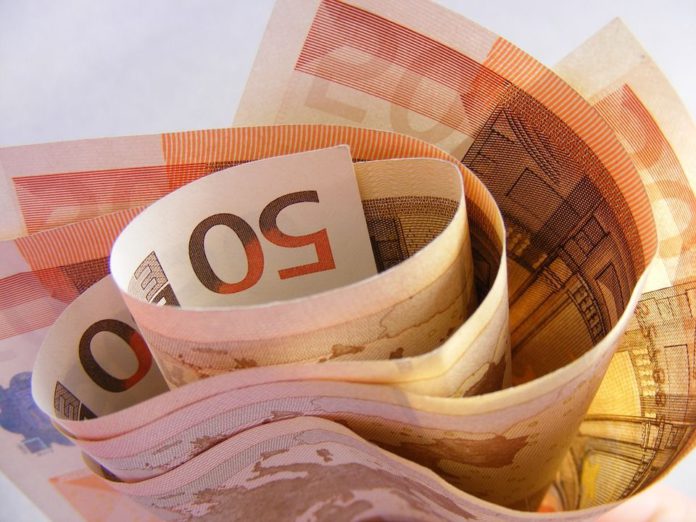In the next part of this article series, Tadgh Quill-Manley, BA Economics (UCC), General Council – Munster Agricultural Society, explores misinformation & money power: its impacts on the agricultural sector. Read part one.
‘Money’ is best understood as a medium of exchange and as a unit of account. There exists the common misconception that money is in itself a commodity of its own intrinsic value.
However, this is an erroneous belief that is still long harboured from a time when money was pegged to metals, such as gold and silver. This is no longer the case, as practically all modern currencies exist as fiat money.
Fiat money, issued by a government or an economic bloc’s Central Bank, is ‘spent’ into existence, when it is created out of thin air, usually in the form of loans.
The creation of money, by means of ‘keystrokes,’ directs which sectors receive investment and support and typically increases output and incomes in those areas, respectively.
However, much credit creation at present does not increase output. Plenty of ‘keystrokes’ are used to buy financial assets on the stock exchange, move SPVs and encourage profiteering.
As of 2022, SPVs supported by sanctions-hit Russian companies accounted for more than 60% of the €35.5 billion of assets held in Irish SPVs used for funding purposes.
Still, very few are willing to apply any ‘keystrokes’ for where it is needed most – by harnessing credit creation for productive purposes, such as supporting wages through employment, as well as deteriorating local industries.
Across this country, shop fronts lie vacant, unused land remains wastefully untilled, idle vehicles rot, and milking parlours sit in neglect, as a shortage of money available for its rightful function inhibits the use of these assets for productive purposes.
The matter of unpaid farm labour in the matter of input and its impact on the economy finds an interesting relation to the theories of engineer and post-WWI economic theorist, Major Clifford Hugh Douglas.
While re-organising the work of the Royal Aircraft Establishment during World War I, Douglas noticed that the total weekly costs of goods produced were greater than the sums paid to workers for wages, salaries, and dividends.
This seemed to contradict the theory of classic Ricardian economics, stating that all costs are distributed simultaneously as purchasing power.
Later, when collecting data from more than 100 large British businesses, he found that all except those becoming bankrupt had paid less in salaries, wages, and dividends than the costs of goods and services produced each week, as the workers were not paid enough to buy back what they had made.
System of accountancy
In an article published in the magazine English Review, he suggested that “we are living under a system of accountancy which renders the delivery of the nation’s goods and services to itself a technical impossibility”.
He reasoned that this was caused by unnecessary scarcity through a lack of credit being invested for the purpose of increasing aggregate production.
In an economy, the Keynesian analysis would argue that when effective demand falls short of supply, the result is unemployment and depression.
It should be noted that ‘demand’ in the Keynesian model means the total level of effective demand in the economy, while ‘supply’ means the country’s capacity to produce.
According to the Keynesian principle of effective demand, an increase in consumption results in an increase in income, which leads to a further increase in consumption.
As a result of this multiplier effect, the provision of subsidies pushes up GDP by an amount greater than the amount of subsidies.
This direction of money was the core reasoning behind creating the Common Agricultural Policy (CAP) by the EEC (now the EU) in its original form back in 1962.
By giving debt-free credit to farmers in the form of grants, more money existed to increase productivity and farmers’ incomes to a more adequate standard.
Keynes noted that a decrease in income and spending reduced aggregate economic output and created a perpetual depression because saving resulted in a reduction in economic activity, a phenomenon he termed “the paradox of thrift”.
Irish government
Is it any wonder then that the government has launched a €12m crop cultivation scheme to boost grain production in light of the supply-chain disruption of this necessary resource resulting from the outbreak of the 2022 Russian-Ukraine War?
Described as a “wartime tillage” programme, agriculture Minister Charlie McConalogue, told RTÉ radio that the tillage scheme would “significantly improve our capacity to grow grain”.
Up until now, Ireland has imported two-thirds of the grain it consumes, which is mostly used in animal feed.
Why is it that repeatedly, money for investment can be found in war times but not in peace times?
Only in WWII did the Irish State last embark on a scheme of this kind, through the Compulsory Tillage Scheme from 1940-1948.
Before that, it was only in 1917, at the height of WWI, that the then Department of Agriculture and Technical Instruction introduced a similar scheme.
The British Government famously saw an incredible surge in economic growth, accompanied by low inflation during WWII, despite the destruction of many workplaces through bombing.
This is because it ramped up production for the war effort, leading to high employment and higher consumer incomes.
Debt
Furthermore, the issue of high debt amongst farms is detrimental to the survival of each individual enterprise, and there exists, currently, a stranglehold on the prerequisite funding to meet realistic working capital requirements on modern Irish farms.
As only 3% of all money exists as legal tender, money is created by inputting numbers into accounts, therefore increasing the money supply.
Yet, when loans are repaid, debit and credit ‘cancel each other out,’ thereby reducing the money supply and leaving less money in the sector to utilise towards supporting the rural economy.





